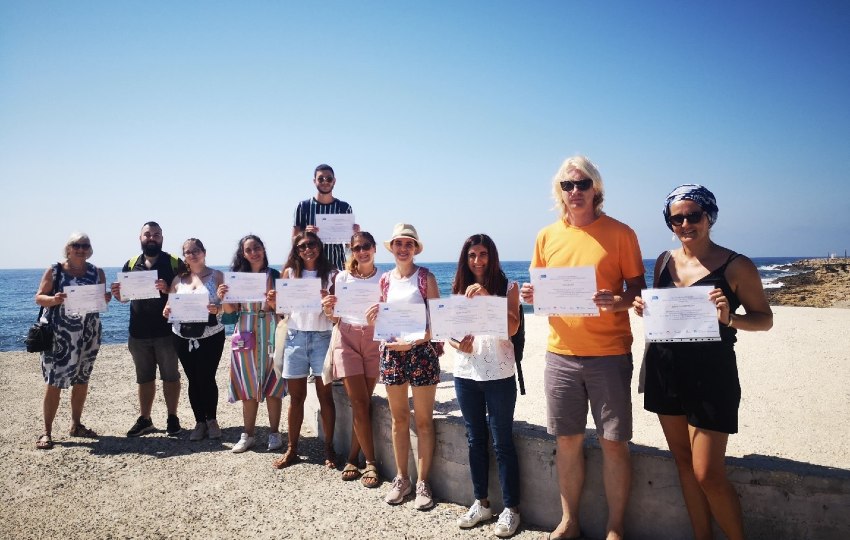The training course of the project “European Social entrepreneur”, which was held in Pafos, Cyprus from 26 to 28 September 2021, has ended with great success.
The theoretical-practical training course was aimed at youth workers and educators who improved and strengthened their skills on how to relate and approach disadvantaged youth and help them understand the importance of being active citizens, know the elements needed to start a business idea, and gain more knowledge about social entrepreneurship.
The agenda of the training
Day 1
On the first day each partner presented their respective organizations, and Fabiola Porcelli, the representative of Co-Labory, presented the project as promoters and coordinators. The next contribution focused on “European funding solutions for social enterprises” by CCIF. In particular, with Marina Aristodemou, we discussed the following programs: European Social Fund, Just Transition Mechanism, European Green Deal and the EU program for employment and social innovation EaSI.
Then we experienced a practical activity, led by Pan Michael Soteri, Youth Worker and Trainer of CCIF entitled “Customer development“, and we analyzed thanks to the contribution of Fenia Kalantzi, representative of iED, “What is a Social Enterprise“, taking into account the specificities of each country emerged from our Manual.
At the end of the theoretical presentation, the participants were involved in a workshop entitled “Entrepreneurizer“, in which to provide a deeper understanding of entrepreneurship, stimulate the creativity of the participants, increase the participants’ communication and teamwork, the facilitator divided the participants into groups.
The first day ended with a visit to Pafos Castle.
Day 2
The second day of training featured Cidália Rocha from CAI who addressed the theoretical session: “Launch a Social Enterprise Plan” including the Marketing, Organizational and Financial Plan and the practical session of Personal Reflection. This was followed by the contribution of Paul Smulski, representative of MITRA France who explained how a CANVAS Business Model works and involved the participants in a practical workshop.
Day 3
The third day started with a visit to the Archaeological Park of Chariklia Sarika, and the afternoon session was led by Fabiola Porcelli from Co-Labory who introduced the concept “Who is the Social Entrepreneur?”, and the practical session saw participants engaged in a test of self-assessment of entrepreneurship attitude.
The second session saw Victor BALAJ of ACTA Center address the topic of Social Impact, the Sustainable Development Goals (SDGs), the 17 goals contained in the grand plan of action on which the governments of the 193 UN member countries have agreed, and “Examples of Sustainable Social Enterprises“. This was followed by a practical activity entitled: “Soft skills needed to launch a social enterprise“, learning the techniques of Assertive Communication.

